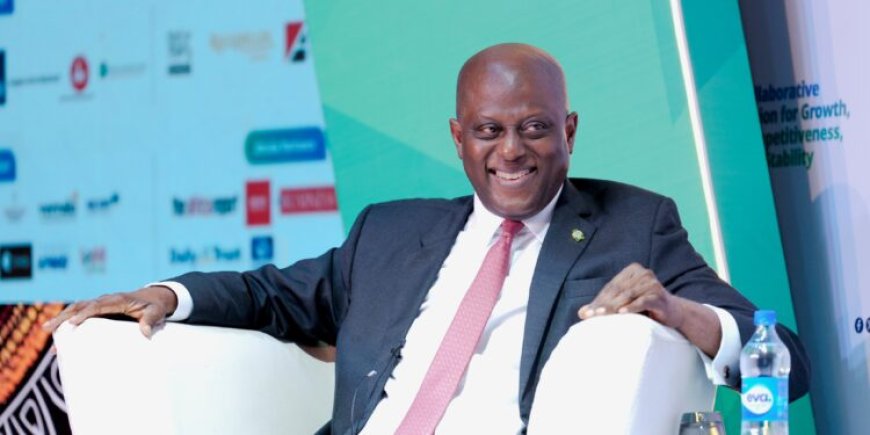CBN Governor Cardoso projects decline in interest rates as inflation eases

Governor of the Central Bank of Nigeria (CBN), Olayemi Cardoso, has projected a future decline in interest rates, citing easing inflation and improved capital allocation efficiency as key drivers.
Speaking at the European Business Chamber (Eurocham Nigeria) C-Level Forum in Lagos, Cardoso emphasized that the current high lending rates, ranging between 32% and 36% on commercial loans, could see downward pressure as macroeconomic conditions stabilize.
“There was a substantial potential for interest rates to decrease in the future.”
During a fireside chat moderated by Andreas Voss, Chief Country Representative of Deutsche Bank Nigeria, Cardoso outlined the CBN’s strategic priorities, including macroeconomic stability, banking sector recapitalization, and positioning Nigeria as a prime investment destination.
Inflation Trends and Monetary Tightening
Cardoso acknowledged that headline inflation remains elevated but noted a gradual decline due to coordinated policy efforts.
“It is decreasing as a consequence of collective efforts. It is anticipated that the advantages of the CBN tightening posture will persist. We will protect the stability that has been re-established in the financial system with the utmost zeal.
He reaffirmed the CBN’s commitment to maintaining financial system stability through a tightening posture, which he believes will continue to yield positive outcomes.
“Our primary objective is to maintain that stability while simultaneously addressing inflation and ensuring that the financial system is sufficiently resilient to facilitate corporate lending and investment,” he said.
Banking Sector Recapitalization and Financial Inclusion
The governor also provided updates on the ongoing recapitalization of Nigerian banks, describing it as a critical step toward building institutions capable of withstanding economic shocks and financing growth.
The CBN’s directive for banks to raise their minimum capital is aimed at strengthening the financial system and expanding its capacity to support broader economic activities.
In addition, Cardoso highlighted the role of technology-driven solutions in deepening financial access, reducing poverty, and enhancing the fintech ecosystem. He stressed the importance of financial inclusion as a pillar of sustainable development.
Fiscal Collaboration and Long-Term Reform
Cardoso praised the growing synergy between the CBN and fiscal authorities, including the Ministries of Finance, Industry, Trade and Investment, and the Budget Office.
He described this collaboration as essential for sustaining reforms and achieving long-term economic stability.
What You Should Know
- A National Bureau of Statistics (NBS) report last month showed that Nigeria’s headline inflation rate slowed slightly to 21.88% in July 2025, marking a modest retreat from the previous month’s figure of 22.22%.
- The data shows that, on a year-on-year basis, the headline inflation rate was 11.52% lower than the rate recorded in July 2024, which was at 33.40%.
- The NBS report shows that Nigeria’s urban inflation rate stood at 22.01% in July 2025, which was 13.76% points lower compared to the 35.77% recorded in July 2024.









